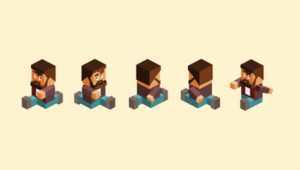 Mostly due to the very hyped Ruby on Rails web application framework, Ruby has been talked about a lot over the past four years or so — perhaps disproportionately so to the amount of people actually using it. However, Ruby usage had also been growing like a weed based on all available metrics. But has that changed recently? Are people starting to jump off the Ruby bandwagon?
Mostly due to the very hyped Ruby on Rails web application framework, Ruby has been talked about a lot over the past four years or so — perhaps disproportionately so to the amount of people actually using it. However, Ruby usage had also been growing like a weed based on all available metrics. But has that changed recently? Are people starting to jump off the Ruby bandwagon?
Analysts are high on Ruby’s future. Gartner research vice president Mark Driver predicted in his April 2008 report “Open Source in Programming Languages,” that there would be 4 million Ruby developers by 2013. Further, he noted that Ruby would enjoy huge popularity in the enterprise. “Ruby will enjoy a higher concentration among corporate IT developers than typical, dynamic ‘scripting’ languages, such as PHP,” he wrote.
Black Duck Software, who owns the code search engine Koders, said in October that Ruby searches were up 20-fold last year and had passed Python, PHP, and Perl to become the fourth most searched for language on their site. That result seems to be anomalous, however, when compared with the rest of the web.
The TIOBE Index, which looks at search data from the top mainstream search engines — Google, Yahoo!, MSN, and YouTube, currently ranks Ruby at number 11 — a push year-over-year. Though Ruby actually had the third largest one year growth, it wasn’t enough to crack the top 10 languages, and off ranking highs reached two years ago.
Over the past five years, Python is actually growing faster than Ruby — at least in search volume.
Another metric, Ohloh’s language comparison tool, which measures commits, lines of code, and contributors for open source projects, shows steady growth for Ruby starting 2005, but a dip recently. That trend is repeated across all the metrics Ohloh measures. PHP and Python, on the other hand, show more or less continued steady growth over the past ten years.
Conclusion
So is Ruby’s popularity declining? It might be a bit premature to say that — TIOBE actually show that Ruby gained search share this year faster than any other language except C and C++, and there are still more and more ruby jobs available each month, according to Indeed. What the numbers in this post might show, however, is a slight slow down in Ruby’s rate of growth.
Determining what is the most popular programming language is an difficult prospect, but it would certainly appear from the numbers we do have that Gartner’s guess that Ruby would be outstripping PHP among corporate developers by 2013 might not be accurate. PHP and Python both have more activity than Ruby in almost every measure, and show no sign of declining — while Ruby’s growth seems to be leveling off a bit.
The good news all around, of course, is that the job trend line for all three languages is on the upswing.
Full disclosure: I co-own a popular Ruby on Rails community site, so have a vested interest in the popularity of the Ruby language.
 Josh Catone
Josh CatoneBefore joining Jilt, Josh Catone was the Executive Director of Editorial Projects at Mashable, the Lead Writer at ReadWriteWeb, Lead Blogger at SitePoint, and the Community Evangelist at DandyID. On the side, Josh enjoys managing his blog The Fluffington Post.



































































































